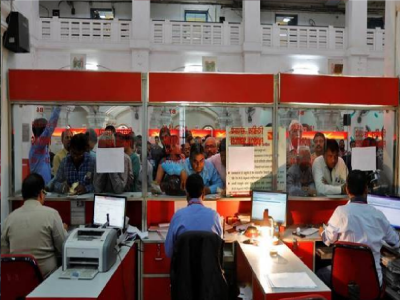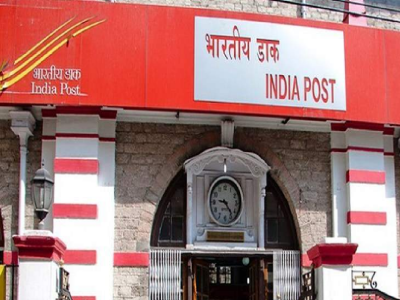Post Office scheme: profitable scheme of Post Office; 14 lakh fund will be available in just 5 years
By Lokmat English Desk | Published: July 20, 2022 05:10 PM2022-07-20T17:10:16+5:302022-07-20T17:10:16+5:30

Post Office runs many great and beneficial schemes for its customers. It has plans available for people of all age groups. If you also want to invest safely, you can become a millionaire in just a few years.

Today we are going to tell you about Post Office Senior Citizen Savings Scheme. In this scheme you get interest at the rate of 7.4 percent. That is, by investing in this scheme, you can build a huge fund of Rs 14 lakhs in just 5 years.

If you are retired, Post Office Senior Citizen Savings Scheme (SCSS) is more beneficial and better for you. It is advisable to invest your lifetime earnings in a place which is safe and also gives good returns.

Age should be 60 years to open account in SCSS. Only people aged 60 years or above can open an account in this scheme. Apart from this, people who have taken VRS (Voluntary Retirement Scheme) can also open an account in this scheme.

If you invest a lump sum of Rs 10 lakh in this scheme, after 5 years at 7.4 percent interest per annum (compounded), the total amount of the investor is 14,28,964. In this you are getting a benefit of Rs 4,28,964 as interest.

The minimum amount to open an account in this scheme is Rs 1000. Besides, you can keep a maximum of Rs 15 lakh in this account. Besides, if your account opening amount is less than one lakh rupees, you can also open the account by paying cash. More than one lakh rupees.

The maturity period of SCSS is 5 years, but this period can be extended if the investor wishes. As per India Post website, you can extend this plan for 3 years after maturity. To increase this you have to go to the post office and apply.

Tax benefits are also available in this scheme. If your interest amount under SCSS exceeds Rs 10000 per annum, your TDS deduction will start. But, the investment in this scheme is exempted under Section 80C of the Income Tax Act.























